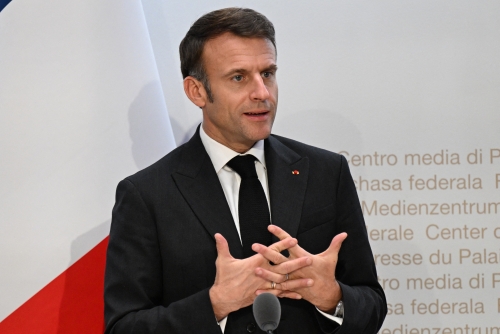Macron faces rare diplomatic dissent over Middle East
AFP | Paris
The Daily Tribune – www.newsofbahrain.com
A group of French diplomats have penned a highly unusual joint memorandum deploring what they allege is a pro-Israeli bias from President Emmanuel Macron, adding to pressure on the president after sometimes controversial statements over the conflict between Israel and Hamas.
French daily newspaper Le Figaro said on Monday that around a dozen French ambassadors accredited to the Middle East and North Africa countries signed the confidential note, calling it an "unprecedented gesture in the recent history of French diplomacy in the Arab world."
The exact content of the cable has not been revealed, although diplomats and sources, who spoke to AFP, confirmed its existence.
The diplomatic missive, sent as an official but confidential "note" to the foreign ministry, reflects the unease of certain officials at the Quai d'Orsay over Macron's policies on the war sparked by the unprecedented October 7 attack by Hamas against Israel that was followed by relentless Israeli bombing of the Gaza Strip.
"It is an internal note of a professional nature which is unusual in its form since it is collective," Denis Bauchard, a former French ambassador to Jordan, told AFP.
Every day French embassies and consulates send dozens or more diplomatic cables to the foreign ministry in Paris, but they are supposed to remain confidential.
A Paris-based diplomat, speaking on condition of anonymity, said the leaking of the existence of the note was "not accidental."
- 'Expression of concern' -
Bauchard, who is also former director for North Africa and the Middle East at the French foreign ministry, described the memo as "a genuine initiative by the ambassadors who are making the same observation."
The identities of the high-ranking diplomats behind the note have not been revealed.
"It's an expression of concern that France is losing influence, including in countries with which it has traditionally enjoyed good relations, such as Lebanon, Jordan and Egypt," Bauchard said.
French foreign ministry spokeswoman Anne-Claire Legendre said Paris would not comment on diplomatic correspondence of a confidential nature.
"Diplomacy is not a matter of individual opinions expressed in the press," she said.
Yves Aubin de la Messuziere, a former envoy to Iraq and Tunisia, said the note appeared because of the "incomprehension" that Macron's policies on the Israeli-Palestinian conflict aroused among some ambassadors.
"We have the impression," he said, "of ill-considered or totally improvised initiatives or proposals."
He singled out Macron's recent call for Palestinian militants Hamas to be added to the targets of an international coalition against the Islamic State group.
That proposal was "useless and ineffective", he said, noting that many Arab countries would not join such an initiative.
He said that Macron's policies made France's foreign policy "illegible", complicating the job of diplomats on the ground.
Aubin de la Messuziere said that the Israeli-Palestinian question was "a structuring element of France's foreign policy" for many decades, from the reign of General Charles de Gaulle to the presidency of Jacques Chirac.
He lamented that in recent years the Israeli-Palestinian conflict had lost its "centrality" for France, noting that Macron did not mention the decades-old problem in his speech to ambassadors last August.
"The situation is very serious, because it is a matter of losing influence in the region", he added.
- 'Lost credibility in Arab world' -
Some worry that France has lost the image of a country seeking a balanced approach to addressing the conflict between Israel and the Palestinians.
"There is a growing perception in Arab countries that France is aligned with the United States and gives almost unconditional support to Israel", said Bauchard.
An adviser to Iraqi Prime Minister Mohammed Shia al-Sudani said that Macron's statements, particularly during his visit to Israel, did not go unnoticed.
"The French president has lost his credibility in the Arab world and his reputation," the adviser told AFP in early November, speaking on condition of anonymity.
Both Bauchard and Aubin de la Messuziere said that French diplomats were also concerned the Elysee's diplomatic team sidelined the foreign ministry under Foreign Minister Catherine Colonna, who was previously France's ambassador to London.
"The president is obviously not obliged to follow the advice given to him by diplomats, whether at the Elysee or the Quai d'Orsay, but the feeling is too often, rightly or wrongly, one of intuitive improvisation", Bauchard said.
Legendre, the French foreign ministry spokeswoman, insisted that the ministry was keeping its sway.
"Each international situation is the subject of numerous contributions from our diplomatic posts," she said.
Related Posts

